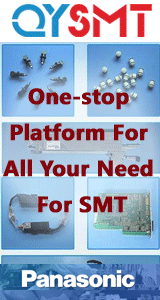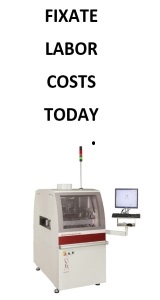It's a script straight out of the movies. Just replace "blood diamonds" with "blood metals" and begin with a scene that demonstrates the tens of millions of dollars in profit flowing into rebel mines in the Democratic Republic of the Congo (DRC), funding criminal networks and perpetrating horrific war crimes. In the movie, the U.S. government comes to the rescue by implementing a law that withholds resources from these groups, breaks the rebel mines and ends the atrocities.
It seems logical: just don’t buy minerals (metals) from the rebel “conflict” mines in the DRC and that will put them out of business. Initially I thought the same thing. Unfortunately, social responsibility issues are complex no matter how much we like to think or fervently wish there is a simple solution.
IPC, an international trade association based in Bannockburn, Illinois has been working on this issue for the last two years. Yes, there is a significant financial toll to the electronics industry on this issue. But here’s the dirty little secret - there’s a human toll to pay in “boycotting” the mines in the DRC. Consider the DRC’s tin mines. The DRC’s tin mines account for roughly four percent of the global market for tin; and it’s estimated that about two percent of tin from the DRC has been identified as coming from conflict mines. Where does the other two percent of tin come from? The tin comes from many artisanal mines — mom and pop operations — whose wages support tens of thousands of people.
It’s tough, dirty work in these artisanal mines, but it does provide a wage. A boycott of all the mines in the DRC will shut down these artisanal mines as well. Consequently, tens of thousands of miners in the DRC will lose their jobs and most likely their only source of income. Starvation will probably follow. And make no mistake about it, the artisanal mines will be shut down.
Moreover, there’s a better than average chance that other countries surrounding the DRC will experience the flight from African minerals by the global business community. And then, these African countries — like Rwanda — will suffer greatly too.
So what’s causing these unintended consequences? The Dodd-Frank Wall Street Reform and Consumer Protection Act of 2010 requires publicly traded companies to report to the U.S. Security and Exchange Commission (SEC) on their source of tantalum, tin, tungsten and gold. Though the SEC is still working on the rules, even now requirements are flowing down through the entire supply chain and across all U.S. industry segments, from automotive manufacturers to construction equipment to electronics.
SEC rules are attempting to immediately solve a long-standing social conflict that has resisted efforts by the International Conference on the Great Lakes Region (ICGLR), the U.S. State Department, and the United Nations (U.N.).
Plus, the enormity of the supply chain review and audit is breathtaking, probably larger and more costly in scope than the lead-free requirements of the Restriction of Hazardous Substances (RoHS) Directive. While the SEC last year estimated the cost of implementation at $16.5 million, IPC, in a survey to its members, estimated the cost to the electronic interconnection industry alone to be $279 million in the first year of implementation.
What’s the answer then? Well, the law has been passed and the SEC is writing the rules to address sourcing conflict metals. For artisanal miners, the damage has been done. No OEM in its right mind (or members of its supply chain) will willingly source metals from Africa, let alone the DRC.
Quite candidly, no one will oppose the law. As you can see, this is a complex issue turned into sound bites by well-meaning, nongovernmental organizations using terms like “blood metals” and “bloodberry phones.” If you oppose the law, it will appear that you support rape and murder in the DRC by the rebel miners and criminal networks. It’s a no-win position.
There was, and maybe still is, a responsible solution to the issue of conflict metals. Over the last three years, electronics industry groups and global metals associations have been working to “bag and tag” minerals from artisanal mines in the DRC. The bag and tag program, initiated by the ITRI (formerly known as the International Tin Research Institute), is a comprehensive due diligence plan for tin minerals sourced from the DRC, and has been widely welcomed with input from the United Nations, the Organisation for Economic Co-operation and Development (OECD) and a number of nongovernmental organizations (NGOs). The bag and tag system starts at the mine where minerals are placed in a bag with a seal and security tagged so the mineral can be traced from the mine site to the smelter and then to the exporter. The DRC government also supports this action as does other countries in the Great Lakes Region of Africa.
It’s not a perfect system, but it can work, if it’s given time to be implemented. The rush to source ‘”conflict free” metals immediately can only serve to worsen the situation in the DRC. Right now, the only smelters that can be certified as “conflict free” are those that are not sourcing in the DRC or adjacent countries. We need to give certification systems time to work.
Let’s face it; it seems nothing in the DRC is perfect or easy, even though we keep trying to legislate to make it that way. It’s real life however, and not a movie.
Tony Hilvers, Vice President of Industry Programs
IPC - Association Connecting Electronics Industries®
Additional resources:
http://www.ipc.org/minerals
http://www.eicc.info/extractives.htm
http://www.oecd.org/document/36/0,3746,en_2649_34889_44307940_1_1_1_1,00.html
http://www.icglr.org/IMG/pdf/PAC_Report_on_ICGLR_RCM-03-2011-eng-2.pdf
http://www.itri.co.uk/pooled/articles/BF_NEWSART/view.asp?Q=BF_NEWSART_323061
http://www.itri.co.uk/pooled/articles/BF_NEWSART/view.asp?Q=BF_NEWSART_322655
 »
»





